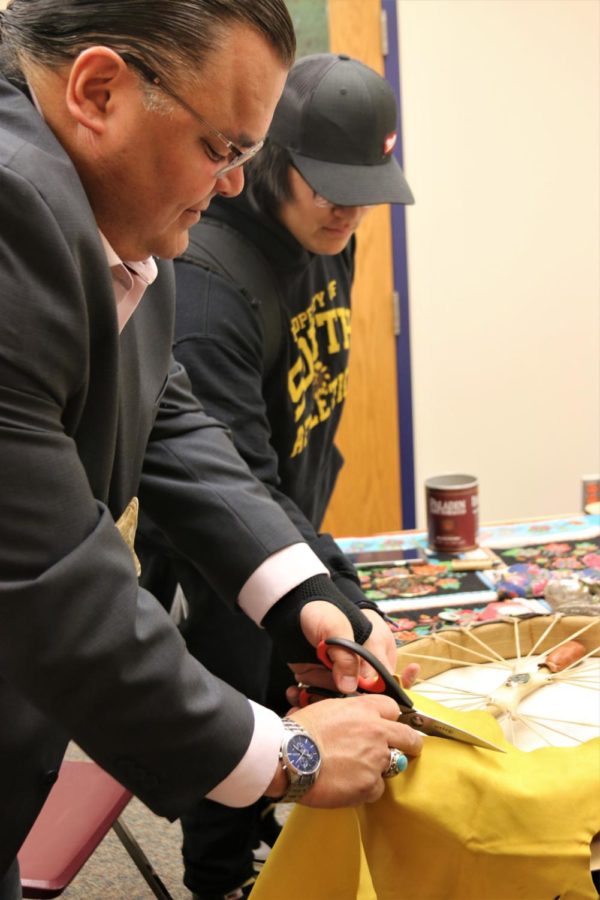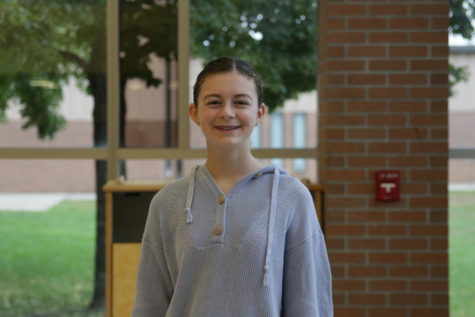Native American Cultural Studies Class Begins Throughout Fargo Public Schools
February 24, 2023
The Native American Cultural Studies course began for the first time in Fargo Public Schools this semester. Ricky White, Indian Education Cultural Specialist, proposed this course last spring out of recognition that there hasn’t previously been a lot of Native American content in the FPS curriculum. The class meets once per week, as White makes rounds to all the high schools in Fargo.
“Your language and your culture is exactly who you are. And most of that has been erased from the Native Americans,” said White. “Many of our students know they’re Native American, but they don’t really know much more than that. So this course has really been put in place to awaken them and awaken that knowledge and plant more of those seeds, give them more confidence; give them more pride, and also erase some of that guilt and shame [that comes from] the fact that they don’t know much about who they are.”
This class is not only for Native American students, however. Students of any race can take this class every year for credit. “I have a saying: What is good for Native students is good for all students,” said White. “The concepts that we talk about in here: mindful practices, our crafts that we make, they’re not just meant to keep us busy and distract us. They actually have morality teachings, themed teachings, that we can blend into our everyday life.”
At the beginning of each class period, White and the students practice smudging, a Native American ceremonial ritual of burning medicines gathered in nature, such as sage, in an abalone shell. One purpose of this ritual is to cleanse spaces of negative energy. “It brings an aura of a welcoming environment,” said White. And it’s not necessarily the burning itself that has this effect. “It’s the intentionality of going through the motions… for your mind to say, ‘Okay, I’m gonna get myself into a place where I’m here to learn and receive whatever teachings we’re going to get here today.'”
Throughout the year, students taking Native American Cultural Studies keep a slide deck (portfolio) of things they’ve completed. They include pictures of activities and writing about what they learned. Students can keep this deck, a physical record of the teachings they received, throughout the rest of their lives.
The biggest project of the class is to study a specific tribal nation. For Native students, this means learning about themselves and where they are from. “We’re gonna dig deeper and find out exactly what tribe they are from. So, yeah, they might be Ojibwe, but what community? Where’s your reservation from?” White will help them find information about their nation’s government, history and cultural practices, adding information to their slide deck as they go along. This involves getting them connected to Knowledge Keepers (spiritual leaders) from their reservation. Students will interview these people and create personalized videos capturing their experience. Non-Native students will choose a tribal nation to learn about as well. They do every project along with Native American Students.
Along with teaching this class, White has gone into culinary, history and English classes in an effort to help teachers incorporate a Native American perspective. He does his best to support teachers and administrators with training. White applauds Fargo Schools’ willingness to allow this program, as well as their efforts to include Native authors in the curriculum. He is working to bring awareness to the fact that this resource exists for teachers and students.
So why is this all important? In the words of White: “We are born into not knowing who we are. That’s a very real thing. And that’s many, many, many of our Native people. The erasure and the assimilation is such that that is what we are born into.” Many Native people go through a lifetime of not having much connectivity, and this is what White is trying to change. “When these students have kids, what are those kids going to be born into? Are they likely going to be born into something a little more than what [their parents] had? I would hope so.”



